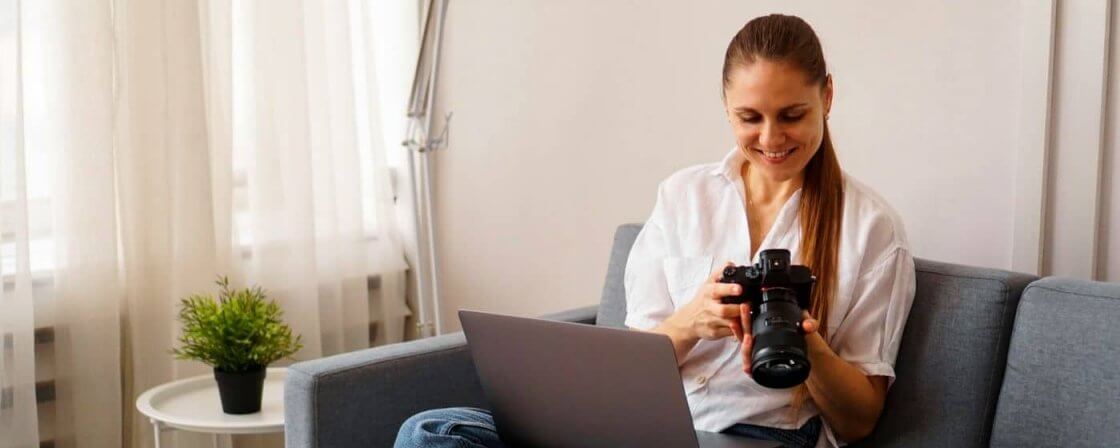What is copyright?
Copyright, often known as copyright, protects works of authorship and the rights of their creators for a period of time set by law. Only the author of the work has the right to decide how his or her work is to be treated and whether to allow its use by sale, loan, rental, display or other means. Only authors or copyright holders have the right to reproduce, distribute, publicly perform, translate and create derivative works.
What is Copyleft
When it comes to software, film and music production, copyright law is not sufficient in this day and age, where works are relatively easy to distribute due to the ease of transcription into digital data and subsequent anonymous file sharing. This has led to the emergence of alternatives to copyright, collectively referred to as copyleft with the phrase “some rights reserved” instead of “all rights reserved”.
It is therefore a specific type of licence that allows users free access to software while requiring that all derivative works and modifications be distributed under the same terms as the original work. This means that any derivative works or modifications must be re-licensed under a licence that allows free access to their source code or design.
The most widely used copyleft licences have become the GNU GPL for software and Creative Commons for other works of authorship. These licenses therefore allow the publication of works (or even their modification) subject to conditions set by the author.
How copyright and copyleft differ
Copyright grants the author or copyright holder exclusive rights such as reproduction, distribution, public performance, translation and creation of derivative works. Copyleft then allows users to freely use, study, modify and distribute the software (or other work), as long as they maintain the same free terms for other users.
Thus, the main difference between copyright and copyleft is that copyright protects the author’s rights in his work and gives him the right to dispose of it as he sees fit. Copyleft, on the other hand, uses copyright to ensure that the work remains freely available and open to other users.
What can be considered a work of authorship?
The work must be the unique result of the author’s creative activity, i.e. the result of creativity and not plagiarism. At the same time, it must be expressed in an objectively perceptible form, which includes electronic form. Thus, a mere idea is not enough.
Examples of an author’s work:
- a musical work,
- a cinematographic work,
- verbal work,
- works of painting, graphic art and sculpture,
- works of architecture and urban planning,
- computer programs,
- photography,
- dramatic works and others listed in the Copyright Act.
What doesn’t count as a work of authorship?
- the subject matter of the work itself,
- the daily news,
- process, principle, method,
- discovery, scientific theory,
- mathematical formula, statistical graph.
Copyright applies to the completed work as well as to its phases and parts, including the title and the names of the characters.
Who does the law consider to be the author of a work?
Unlike the Anglo-American concept, where a legal person can be the author, in our environment creative abilities are attributed only to people, i.e. natural persons. Thus, the author of a work is the natural person who created it. Of course, the law allows for the fact that they may not be directly named, or that more than one person may create the work at the same time:
- Anonymous / pseudonym – according to the law, a work can be published without the author’s name or under a pseudonym. In such cases, the identity of the author may be disclosed only with his/her consent.
- Joint authorship – in this situation, the copyright belongs to all authors jointly. The following cases are not considered joint authorship:
- where the resulting work is made up of several separate components (for example, music and a literary work put together to make a film),
- where someone contributes advice, suggests the creation of the work or contributes assistance.
In the case of co-authorship, it is important to note that the consent of all co-authors is required to deal with a work of authorship, regardless of the extent to which they contributed to its creation. In practice, situations sometimes arise where one of the authors unreasonably prevents the disposal of the work. In such a situation, the co-authors may seek to have the lack of consent replaced by a court.
What rights do the author(s) have when the work is created?
Once a work is created, the author acquires rights which are regulated by copyright law. They are divided into property rights and personality rights.
Property rights
Property rights in a work are mainly economic in nature. They confer on the author the exclusive right to decide on the further use of the work. If the author does not give permission to use the work, no other person may dispose of it in any way. However, the author may grant a licence to use the work. The property rights are valid for the duration of the author’s life and for 70 years after his death. For example, in the case of an audiovisual work, the duration of the property rights is calculated from the death of the last of the following persons: the director, the author of the script, the author of the dialogue and the composer of the music.
In practice, for example, we often encounter cases where our client is approached by the “owner” of the proprietary copyright to, for example, a photograph that the client has used as an illustration on his website. In such a case, payment for the license is indeed appropriate, but we definitely recommend consulting an attorney to avoid paying too much.
The right to use the work includes:
- the right to reproduce the work (making copies),
- the right to disseminate the original or a copy of the work (for example, to distribute a created article or e-book over the internet),
- the right to rent the original or a reproduction of the work,
- the right to lend the original or a copy of the work,
- the right to communicate the work to the public (broadcasting the work by radio or television).
Personality rights
As the name suggests, these rights are directly related to the personality of the author and in this case there is no possibility of a transfer of copyright. These rights are valid only during the author’s lifetime and cease upon death. However, this does not mean that the work can be disposed of freely after the author’s death. This event has no effect on the protection of authorship itself, so that even after the death of the author, it is not possible to appropriate someone else’s work (the author’s name must always be given when redistributing the work) or to use it in a way that might diminish its value. The right to copyright protection can be claimed by a relative or other close person of the author, even when the author’ s proprietary rights are no longer in force.
The author’s personality rights include:
- the right to decide on the publication of the work,
- the right to attribute authorship (this includes the right to decide on the attribution of authorship in the publication and subsequent use of the work),
- the right to inviolability of the work (the author has the right to decide on changes and interventions in the work, and the use of the work by another person must not in any way diminish the value of the work).
An example from copyright practice: You may have seen a dispute between the Prague Zoo and the painter Michal Cihlář, who sought to have his artwork removed from the zoo grounds. The artwork was not the work of Michal Cihlář, but it bore a striking resemblance to his original work for the zoo. The Prague City Court found in favour of Cihlář and the ZOO had to remove the works. The ZOO had unclearly negotiated a licensing agreement with Cihlář. In the end, the ZOO did win the dispute, but only in 2018, after ten years of legal wrangling.
How to protect your copyright work?
Copyright protection automatically arises at the time of creation. It does not need to be registered anywhere, as is required, for example, for industrial rights(trademarks, rights in inventions or patents and designs). However, for a better legal position, you may still be advised in some cases to register the work with a collecting society. These are legal entities that have been authorised by the Ministry of Culture to carry out collective management (= representing a large number of persons and collectively exercising and protecting property rights).
At present, these organisations are:
- OSA – for authors of music and lyrics and music publishers,
- OOA-S – for authors of works of visual art, architecture, photographers, authors of computer program images and television/film editors
- DILIA – for authors of literary and music drama works and publishers,
- INTERGRAM – for performers, producers of audiovisual and audio recordings,
- GESTOR – for cases where you are dealing with the resale of an original work of art,
- OAZA – for sound engineers
How does collective copyright representation work in action?
The writer writes a book and signs a standard publishing license agreement with the publisher. Under the agreement, the work is published and the writer is paid a royalty by the publisher – a fee for writing the book and often a share of the sales afterwards. However, the writer may also enter into a contract with DILIA, through which, for example, he or she may receive a certain amount of money for having his or her book borrowed by libraries.
Good to know:
- Representation by a collecting society is conditional on the conclusion of a contract and the payment of a one-off fee.
- Each work must be reported to the organisation on a special form in the year in which it was created.
- In the following year, a share of the total royalty is then paid to the authors with whom the organisation has a collective management agreement.
If for some reason you decide not to use a collective administrator for a valuable work, we recommend that you keep all preparatory materials (sketches, revised texts) or, if necessary, store the work with a notary.
Copyright Act – the law for the protection of copyright
Especially today’s online age makes it easy to use a work without the owners’ consent and thus to infringe copyright. It is not uncommon to see photographs downloaded from the internet used in advertising campaigns or to see copied text on websites. The question is, of course, how sustainable today’s system is and whether we are facing a major reform.
However, under the Copyright Act , in such cases, the author can claim:
- establish his authorship,
- a prohibition on the infringement of his right = for example, a prohibition on the production, commercial sale, export of a reproduction or imitation,
- removing the consequences of the infringement – for example, removing a photograph or text from a website or from sale,
- providing adequate compensation for non-pecuniary damage and the payment of unjust enrichment or damages,
- prohibiting the provision of a service.
He is therefore, of course, entitled to damages and unjust enrichment. For unauthorised use, the author is entitled to double the royalty that would have been paid to him if the work had been used lawfully.
Remember that copyright inheritance occurs. Thus, the author’s heir is entitled to the same rights if this has been confirmed by the court in the succession proceedings.
The author will enforce his rights through a civil suit, but under Czech law, the one who infringes copyright may also be the perpetrator of a crime. Thus, he or she can be punished with a ban on activity, a fine, forfeiture of property or even imprisonment for up to 2 years (or up to 8 years if he or she has received a substantial benefit or committed the act on a significant scale). These are mainly cases of systematic copyright infringement.
Before pursuing your claims in court, an option is to contact the person or company that has committed copyright infringement, bring it to their attention and offer to purchase a licence. In addition to this, you can of course negotiate other conditions for the use of the work (time and geographical limitations, how the work is promoted, the amount of promotional material on which the work is displayed).
When can a work be used without the author’s consent?
Copyright law allows use without consent if:
- The work is used in the context of free use – that is, for personal use without economic or commercial benefit.
- The author’s work is used under a so-called statutory licence – the public interest prevails and commercial use is excluded. A typical example is a news licence (e.g. to illustrate an article on a news server or on TV news), promotion of an exhibition of artworks, use in religious ceremonies, etc.
What the amendment to the Copyright Act has brought
The amendment to the Copyright Act came into force in January 2023 with the aim of incorporating the European Union copyright regulations into Czech law. The main change brought about by the amendment is the tightening of the rules for sharing online content for commercial platforms (e.g. the Ulož.to portal is affected). These portals will have greater liability for illegally shared content by their users. They will have to obtain licenses for protected content, remove illegal content if necessary and prevent re-uploading.
Another big change concerns the protection of publishers’ rights. Online service providers must agree with publishers on the terms of the licence and remuneration. The aim is to prevent large online platforms from exploiting publishers’ works. For example, by providing previews of texts without the publisher’s consent.
The last change is the creation of new types of licences. These include, but are not limited to:
- A license for works not available on the market: this license will allow various institutions (e.g. libraries or archives) to reproduce works that are not available on the market, especially for educational purposes.
- License for automated data analysis: This licence allows the analysis of texts and data for scientific or commercial purposes.
- License for digital learning: This license allows educational institutions to use protected works for teaching purposes.
- License for pastiche: This allows the creation of pastiche, cartoons, parodies, etc. of protected works.
Are you solving a similar problem?
We can help you sort out copyright
We will make sure that your copyright is protected or, alternatively, check that you are not infringing it in any way. All communication with us can be handled online or over the phone and you will have a finished license agreement in as little as 2 days.
Resolve licenses and copyrights
- When you order, you know what you will get and how much it will cost.
- We handle everything online or in person at one of our 6 offices.
- We handle 8 out of 10 requests within 2 working days.
- We have specialists for every field of law.
Summary
Copyright protects works of authorship and gives the author the exclusive right to decide on their use, for example by selling, lending, displaying, reproducing or translating them. An alternative to copyright is copyleft, which allows free access to works provided that all derivative works are distributed under the same licence.
A copyright work is the unique result of creative activity expressed in an objectively perceptible form. This includes music, literature, film, architecture, photography or computer programs. In contrast, uncopyrightable elements include ideas, daily news, mathematical formulas, discoveries and scientific theories. In the Czech legal environment, the author can only be the natural person who created the work, even anonymously or in co-authorship.
After the creation of a work, the author acquires rights, which are divided into property and personality rights. Proprietary rights allow the author to decide on the use of the work and last for his lifetime and 70 years after his death. Personality rights are non-transferable and include the right to authorship, the inviolability of the work and the decision to publish it.
The protection of a copyright work arises automatically at the time of its creation, without the need for registration. For a better legal position, collective rights managers such as OSA, OOA-S, DILIA or INTERGRAM can be used to help with licensing and enforcement.
Use of the work without the author’s consent is only possible under free use for personal use or under legal licenses, for example for news or education. The 2023 amendment to the Copyright Act tightened the rules for online platforms, which are now more liable for illegally shared content. It also strengthened publishers’ rights to fair remuneration for the use of their content and introduced new licences to allow digitisation of unavailable works, data mining or educational use of protected works.





